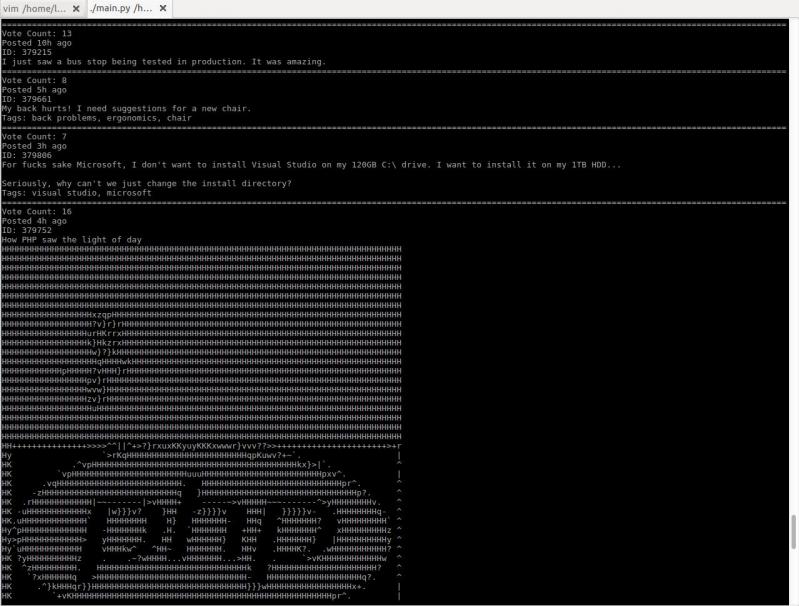Join devRant
Do all the things like
++ or -- rants, post your own rants, comment on others' rants and build your customized dev avatar
Sign Up
Pipeless API

From the creators of devRant, Pipeless lets you power real-time personalized recommendations and activity feeds using a simple API
Learn More
Related Rants

 No questions asked
No questions asked As a Python user and the fucking unicode mess, this is sooooo mean!
As a Python user and the fucking unicode mess, this is sooooo mean! I just started working on a little project to browse devrant from terminal. It converts images to ascii art!
I just started working on a little project to browse devrant from terminal. It converts images to ascii art!
One of our partners sent me a Key Injection Tool to inject encryption keys into a PINPAD with. Looks like they were short on developers and had to hire Python typists who have made a mess of a simple AES encryption/decryption. When do these companies learn that writing a security related software in Python is not really secure? I had to read the rubbish in Python and read it from scratch in C++ to get it to work, and am now contemplating whether to provide that company with my version of their Key Injection Tool or not...
rant
python